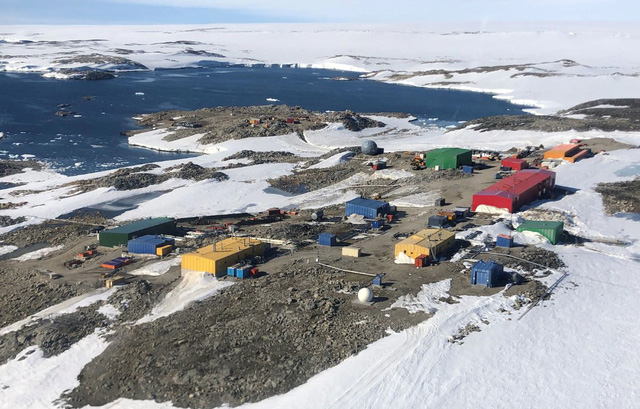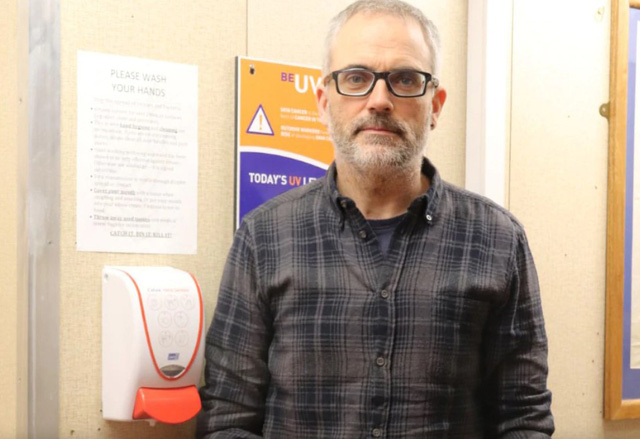This is considered the safest place globally because there is no contact outside, and far from every residential area.
To date, while other continents are struggling with the Covid-19 pandemic, one continent has not yet recorded a case of infection. It is a barren cold Antarctica, where the cold and dark of winter are coming very fast.
Many people say that Antarctica has since become the most “dangerous” place where the heat can drop to near -90 degrees Celsius and wind speeds up to 322 km / h, becoming the “safest” place before. Covid-19 translation as of this moment. Over the past few months, about 4,000 people of various nationalities have monitored the development of the Covid-19 epidemic from Antarctica.

The climate in Antarctica is very harsh.
Alberto Della Rovere (35), head of the Italian expedition to Antarctica, said his colleague friends at home texted via the WhatsApp application: “You’d better stay, Antarctica is very safe. That’s all “.
Even in standard times, only a limited number of people are allowed to leave and go to Antarctica. Medical staff also began checking for signs of Covid-19 and other illnesses. Alberto confidently said: “Right now, Antarctica is the safest place in the world because there is no contact outside and far away from every residential area.” A US research station employee posted a picture of many toilet paper boxes with the caption “Don’t worry about us”.
People stationed in Antarctica may not have been infected with Covid-19 yet, but they are at significant risk if they do. Most facilities can only handle a single case, and they will struggle to prevent the spread of infection.
Tim Heitland, the medical coordinator of a German research station, said most clinics had only one doctor during the winter. And, of course, no one can guarantee that a pandemic will not reach as far as Antarctica! “No continent is immune to coronaviruses, including Antarctica,” said Jeff Ayton, health director of the Antarctic Division of Australia.
Antarctica is home to 28 research countries in the world. Most employees stay here for one to two seasons to conduct or support scientific research.
The continent’s population is highest in the summer, from October to February. By winter, Antarctica falls into darkness, and temperatures plummet, causing many research stations to close. During this time, staying in the station (whether there is an epidemic or not) is something many people do because of the extreme weather conditions.
While the Covid-19 epidemic is spreading exponentially in the rest of the world, life in Antarctica is every day, but only people take care of their hands. Although the Covid-19 outbreak has yet to appear and sounds far-fetched, keeping Antarctica safe from the coronavirus is a top priority for the countries based there.

A researcher in Antarctica.
Michelle Rogan-Finnemore, secretary of the National Program Management Board in Antarctica (COMNAP), said: “I have been active in Antarctica since 1988 but have never witnessed the world facing challenges. awake as Covid-19 “.
Under limited conditions such as Antarctica, infectious diseases are always a matter of concern. One person explained: “Living in Antarctica is like a river on the Moon or Mars. We can not bring people immediately. At Australian stations, we have to prepare 9 months in advance to conduct preliminary. medical canopy “.
While there have been no confirmed cases of Covid-19, health workers in Antarctica have many reasons to worry. One person shared: “If you have an infectious disease in a remote area with limited medical facilities, it will be a burden for the station’s doctors because there are no nurses or health care professionals Health support.
While many countries have closed stations to hibernate before the outbreak, the US McMurdo facility (up to 1,000 people) has just completed its summer program. At present, many aircraft still pass by to take people to and from the station. Those who want to visit Antarctica are checked and quarantined under the supervision of a medical advisor. However, they were not tested for Covid-19.
Although the stations are isolated, phones and the Internet keep them up to date with the world. Everyone’s opinions about the pandemic are also very different: While some people desire to go home to reunite with their families soon, some say they want to stay in Antarctica safely.





